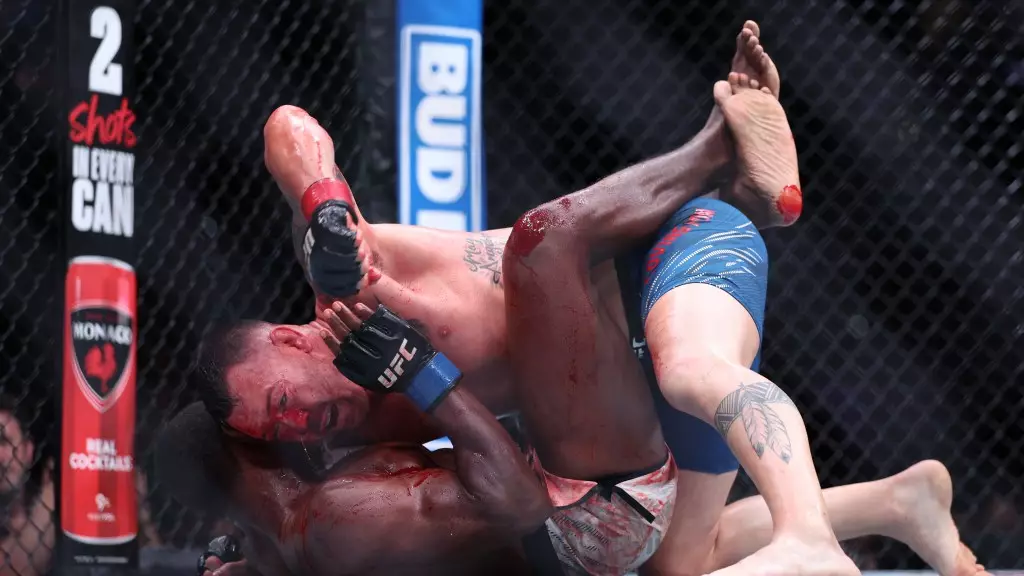Colby Covington, a prominent figure in the world of mixed martial arts, faced an unexpected turn of events at UFC on ESPN 63, where he suffered a third-round doctor stoppage TKO against Joaquin Buckley. This confrontation, held in front of eager fans at Amalie Arena in Tampa, Florida, unfolded in a manner that left many questioning the validity of the referee’s decision to halt the match. Covington’s disappointed reaction was palpable, as he voiced his discontent on his YouTube channel shortly after the bout.
The bout commenced with Covington sustaining an injury—a severe cut on his right eyelid—which began to affect his performance early on. The bleeding, which could have worried any fighter, seemed to add fuel to Covington’s determination. Despite the odds stacked against him and stepping in on short notice, he maintained a calm and resilient demeanor. The fact that he had not undergone extensive training for this fight did not deter him. In his characteristic bravado, Covington declared, “Not bad for no training camp,” showcasing his mental fortitude amidst adversity.
The fight unfolded over three rounds, with Covington losing the first two but showcasing signs of a comeback in the third. His confidence grew as he began to connect more with Buckley, and he felt momentum shifting in his favor. Covington’s understanding of the ebb and flow of fights made the doctor’s interruption particularly frustrating for him, as he believed he was on the verge of taking control.
The stoppage raised critical discussions on the parameters that medical teams employ during fights. UFC CEO Dana White expressed his disagreement with the decision, suggesting that if the fight had unfolded in Las Vegas, it might have proceeded without intervention. White’s commentary reflects a broader debate within the MMA community about how medical evaluations are conducted and the influence of location on fight outcomes. This incident underscores the importance of having consistent standards applied across different venues and jurisdictions, particularly when it comes to fighter safety.
In the aftermath of the fight, Covington remained adamant about his resolve to return stronger than ever. His statement, “We’re going to be back stronger than ever,” resonated deeply, conveying a message of resilience that his fans have come to expect. Despite acknowledging that he did not perform at his peak, Covington expressed an unwavering belief that his best days were ahead. He likened his journey to that of an athlete who has yet to tap into their full potential, signifying that despite setbacks, there’s always room for growth.
Covington’s experience at UFC on ESPN 63 offers insight into the unpredictable nature of combat sports. It serves as a reminder that even established fighters like Covington are susceptible to circumstances beyond their control, and highlights the necessity for careful consideration when medical staff make the tough decisions that can alter the trajectory of a fighter’s career. As he plans to regroup and reenter the octagon, the MMA community will undoubtedly be observing his next steps closely.

